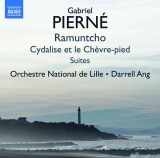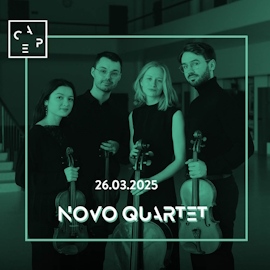Die Musik von Gabriel Pierné (1863-1937) ist ein Spiegelbild verschiedener gesellschaftlicher Strömungen von vor und nach dem Ersten Weltkrieg. So könnte man sein Ballett in zwei Akten und drei Tableaus, Cydalise et le Chèvre-pied, als einen Beitrag des Metzer Komponisten zu den Fêtes galantes der Belle-Epoque ansehen, obwohl es viel später, nämlich 1915, komponiert und 1923 uraufgeführt wurde. Die elegante Musik mit ihrem fließenden und feinen melodischen Diskurs verweist in die mondänen Salons des Second Empire und auf die Fêtes Galantes in Versailles.
Darrell Ang und die Musiker des Orchestre National de Lille spielen die hier in zwei Suiten zusammengefasste, elegante und malerische Musik mit viel Schwung und spritziger Verve in einer bewundernswert leichten und in den lyrischen Teilen auch sehr stimmungsvollen Interpretation.
Die CD beginnt mit einer charmanten und farbenreichen Einspielung der beiden Suiten zum baskischen Schauspiel Ramuntcho.
The music of Gabriel Pierné (1863-1937) is a reflection of various social currents from before and after the First World War. Thus, his ballet in two acts and three tableaux, Cydalise et le Chèvre-pied, could be seen as a contribution by the Metz composer to the Fêtes Galantes of the Belle Epoque, although it was composed much later, in 1915, and premiered in 1923. The elegant music, with its flowing and delicate melodic discourse, refers to the salons of the Second Empire and to the Fêtes Galantes at Versailles.
Darrell Ang and the musicians of the Orchestre National de Lille play the elegant and picturesque music, here collected in two suites, with great and sparkling verve in an admirably light and, in the lyrical sections, also very atmospheric interpretation.
The CD begins with a charming and colorful recording of the two suites to the Basque play Ramuntcho.






















